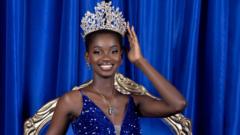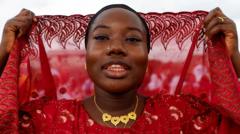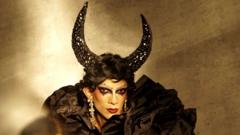Amidst changing beauty standards, the Miss Ivory Coast pageant bans wigs and hair extensions to celebrate natural beauty. Contestants express mixed feelings about the change, which could profoundly affect the beauty industry in the country.
Natural Beauty Over Extensions: Miss Ivory Coast Pageant Embraces New Rules

Natural Beauty Over Extensions: Miss Ivory Coast Pageant Embraces New Rules
The Miss Ivory Coast beauty pageant introduces a ban on wigs and weaves, promoting natural hair and redefining beauty standards in the process.
In a bold move aimed at redefining beauty standards, the Miss Ivory Coast pageant has instituted a ban on wigs and hair extensions for contestants, thus prioritizing natural hairstyles. With a history of more than sixty years, beauty pageants in Ivory Coast have largely been characterized by elaborate hairstyles that often include artificial enhancements. The recent shift is exemplified by the crowning of Marlène-Kany Kouassi in 2022, who, with her natural hair, became one of only two winners to flaunt this look.
Victor Yapobi, president of the Miss Ivory Coast organizing committee, emphasized the need to showcase the authentic beauty of contestants and shifted requirements to encourage natural hair usage. Beyond the hair rules, contestants now have increased opportunities, as the age limit has been raised to 28, the height minimum reduced to 1.67m (5.4ft), and the entry fee lowered by approximately $30 to enhance accessibility.
The prohibition of wigs and weaves has spurred a vibrant debate in a culture where these styles are not only a norm but reflect personal expression. Contestants like Emmanuella Dali have expressed pride in the new direction, noting the freedom it offers for women to embrace their true selves. However, others, such as Astrid Menekou, a contestant and make-up artist, lament the loss of creative expression that comes with the absence of wigs.
This policy change is stirring concerns within the local hair industry, which is thriving on the sales of wigs valued at millions. Hairdressers like Ange Sea are apprehensive about possible financial repercussions as the cultural preference for wigs may eclipse the newly promoted natural aesthetic. The flourishing hair industry, crucial to many livelihoods, could face challenges if consumers begin moving away from wigs.
Furthermore, societal perceptions around natural hair remain complex in Ivory Coast, where media representation has long favored wigs. Despite the emerging natural hair movement globally, local perceptions still find it unprofessional for women in prominent positions to wear natural styles. Experts like trichologist Florence Edwige Nanga highlight the tug of war between modern trends and cultural values that often overlook the potential health risks linked with oppressive styling methods associated with wigs.
As the preliminary rounds progress under this new framework, the expectations and responses towards beauty in Ivory Coast are likely to evolve, leading to an environment where women may exercise more choice when it comes to their hair. With the final event scheduled for June 2025, its outcome could further influence whether this initiative will continue in subsequent years. Notably, contestants, whether winners or not, are leaving with newfound self-assurance and a redefined sense of beauty beyond conventional standards.















